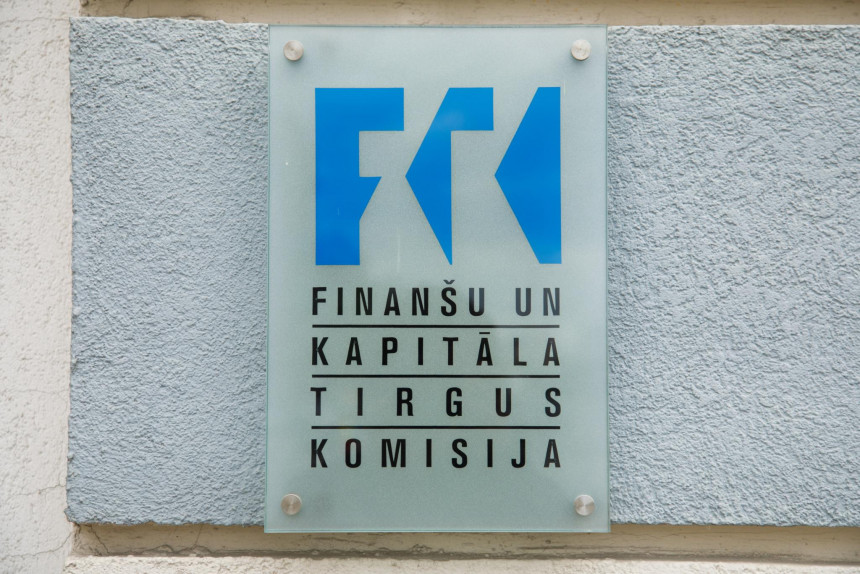Banks are being penalized even after the overhaul

The overhaul of the Latvian financial sector, which was started with the order to liquidate Latvia's largest domestic bank ABLV Bank and the de facto ban on servicing third-country nationals in Latvian credit institutions, has been declared complete. But the suffering of banks and their customers continues. Credit institutions receive penalties, but customers can't get their money or services.
The following quote from the head of the Financial Intelligence Unit Ilze Znotiņa can be read in the news section on their website: “The state has done its homework - not to be included in the gray list - and now the banks have to start doing their homework as well. In other words, banks, under the leadership of a smart and knowledgeable regulator, need to learn to understand and manage risks so that businesses and the economy as a whole do not suffer from overly misunderstood rules.”
A lesson for 2.3 million
However, learning with them obviously does not go as smoothly as the main financial intelligence of the state has imagined, as the knowledgeable regulator, namely the Financial and Capital Market Commission (FCMC), continues to punish its supervised.
Learning outcomes for 2020 have just been announced. The total amount of fines imposed is more than two million euros (2,300,000 euros). The FCMC considers this to be a welcome result. In previous years, most of the inspections had ended with the initiation of administrative cases and the imposition of fines, while in 2020 the FCMC had to decide on the initiation of administrative cases or the application of sanctions only in certain cases. A total of 12 inspections were carried out last year in the field of Prevention of Money Laundering and Terrorism and Proliferation Financing (PMLTPF). The supervisor concluded that the banks had taken significant steps to improve their internal control systems. At the same time, they still had to impose penalties on three banks, as well as impose legal obligations, in order to eliminate the identified shortcomings and improve the banks' internal control systems.
Three banks got taught a lesson
Significantly, one of the fined banks is among the banks beloved by the head of the Financial Intelligence Unit, with whom she has "a great pleasure to work with". That is Citadele Banka. Here is the FCMC's explanation:
“In April 2020, the FCMC and JSC Citadele Banka entered into an administrative agreement, with both parties agreeing to take the necessary measures to further improve the prevention of money laundering and terrorist and proliferation financing, and the FCMC imposed a fine of EUR 647,070.”
In some cases, the bank had not obtained information about the customer's true beneficiary, had not paid sufficient attention to the customer's transactions, had not provided high-quality customer research, and had not made a timely decision on terminating the business relationship with the customer.
The other two punished banks are from the second list - those banks with which financial intelligence is less happy to work with.
“In July 2020, the FCMC decided to impose a fine on Signet Bank AS in the amount of EUR 906,610 for violations of the requirements of PMLTPF regulatory enactments, imposing on the bank several legal obligations to eliminate the deficiencies.”
The violations are the same as for Citadele, plus "the bank has not given the status of a shell corporation to some customers."
The third bank was penalized for failing to obtain documents proving the origin of the funds paid in cash into customers' accounts.
“In November 2020, the FCMC imposed a fine on JSC Reģionālā investīciju banka (Regional Investment Bank) in the amount of EUR 473,076 for insufficient determination of the origin of funds in large-scale cash transactions performed by high-risk bank customers from high-risk jurisdictions."
2021 will be the year of inspections
Banks do not dispute the penalties imposed, at least not in public, they pay what is required. With maximum sensitivity and respect for their supervisors, banks try to point out the negative consequences of the overhaul through their lobby organization, the Finance Latvia Association. At the end of last year, various proposals from the industry were also communicated to the legislator and supervisors, including a call for the FCMC to “develop a clear, pre-defined, preferably published, approach to commission inspections (a manual).”
It is clear that inspections will follow, banks can't make mistakes - they are very costly. But they also can't give up all potentially risky customers by default, because there are too many of them.
According to the new overhaul methodology, almost everyone whose income exceeds the minimum wage is a potential money launderer and terrorist accomplice.
However, the banks should not avoid the risks, but manage them, otherwise the economy will suffer.
And the banking supervisor warns: “In 2021, the FCMC will continue to improve the inspection methodology and the effectiveness of its application in order to be able to assess the effectiveness of credit institutions' internal control system as objectively and qualitatively as possible and provide recommendations for their improvement. Work will also continue to strengthen the application of the risk-based approach in financial institutions."
